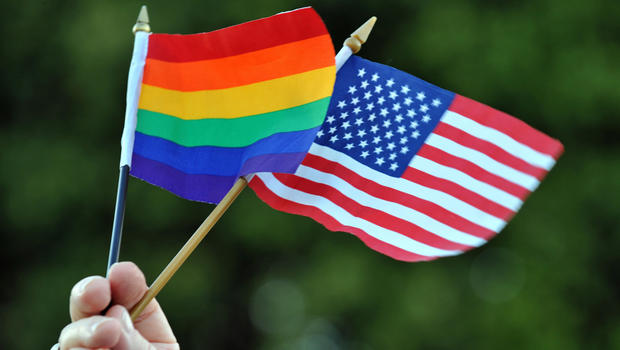
Poll Finds Majority of Americans Object to Religious Freedom Laws Against Same-Sex Rights
- By Alison Lesley --
- 15 Apr 2015 --

Poll results show a strong resistance towards allowing businesses to discriminate based on religious beliefs.
The results published Thursday found that a majority of Americans will side with the LGBT community in times that their rights clash with religious freedom.
The poll was conducted by Reuters/Ipsos from April 6 to April 8. The poll was taken online by 892 different people across the United States who were over the age of 18 years old.
Poll Timing
The poll followed shortly after Indiana and Arkansas experienced highly controversial weeks as of late. In Indiana, Mike Pence, the Republican governor, enacted a Religious Freedom Restoration Act that permitted businesses to refuse service, as well as to refuse hiring, anyone or any group who didn’t match their religious beliefs. The backlash was a force to be reckoned with, and by the end of the week, the law was changed to be less discriminatory against the LGBT community. In Arkansas, Asa Hutchinson made similar changes to avoid the same situation.
The results demonstrated a clear divide in views on same-sex marriage. The survey found that 52% of Americans are completely for same-sex marriage legalization. Only 32% of Americans are against it. These numbers show the split that is likely dividing the politicians from the Americans they represent. The poll asked Americans what they thought about businesses being able to refuse to serve someone based on their personal religious beliefs. A majority, at 54%, felt that it was completely wrong. 28% felt that businesses should have the right to refuse services. In a similar question, the poll found that 55% feel that businesses shouldn’t be able to refuse a job to someone based on their beliefs, while 27% felt they should have the right to do what they please.
New #ReutersPoll Shows Strong Support For #SameSexMarriage in #USA http://t.co/lz8JdkbgJD
— guidetogay.com (@guidetogay) April 12, 2015
When poll takers were asked how they felt same-sex marriage should be handled, 24% didn’t know what should be done. 34% say that the Supreme Court should make it a national constitutional right, while 22% think it should be on a state-level by voter referendum. 11% think the state legislators should decide, and 8% want to leave it to Congress.




















